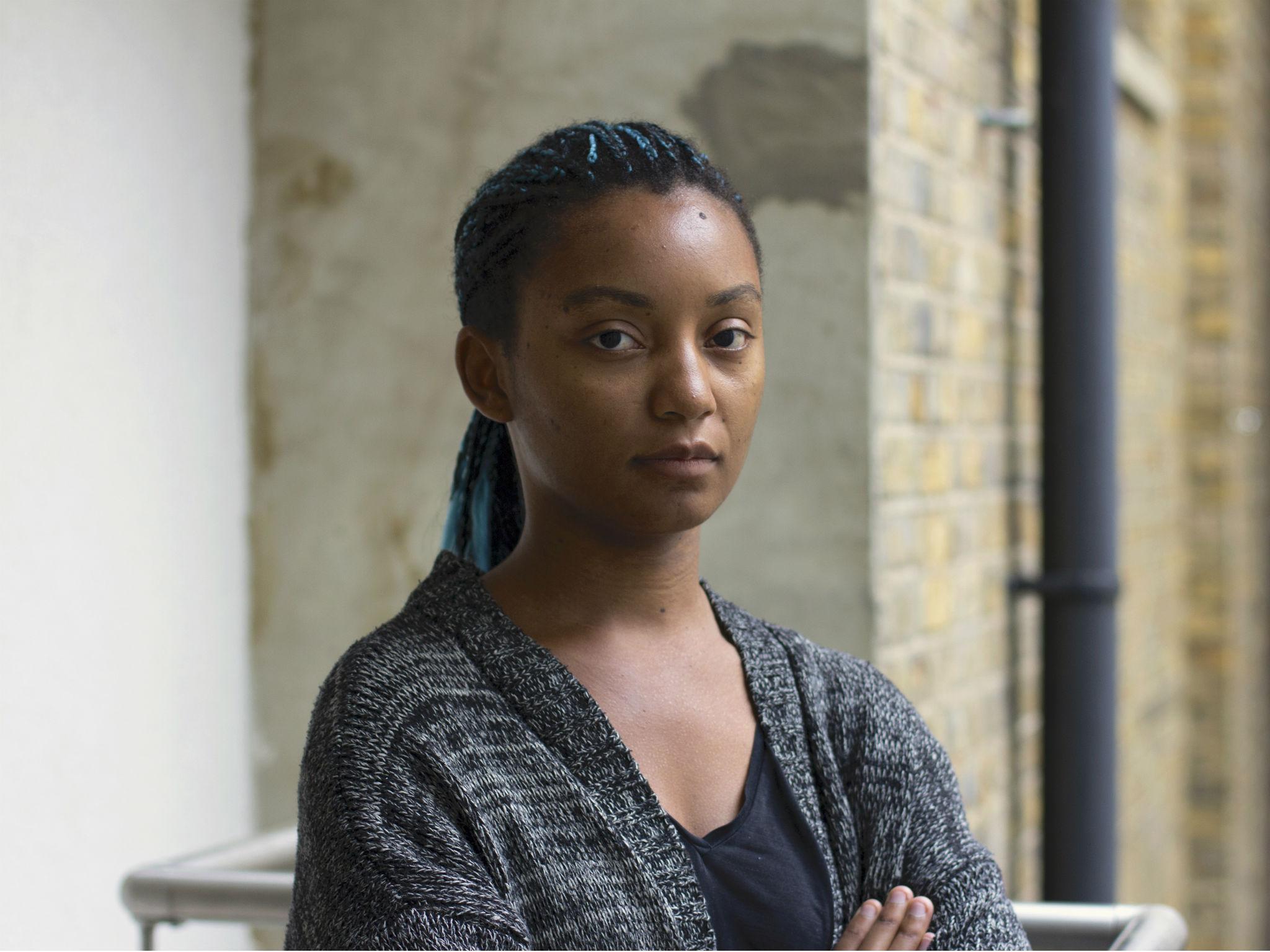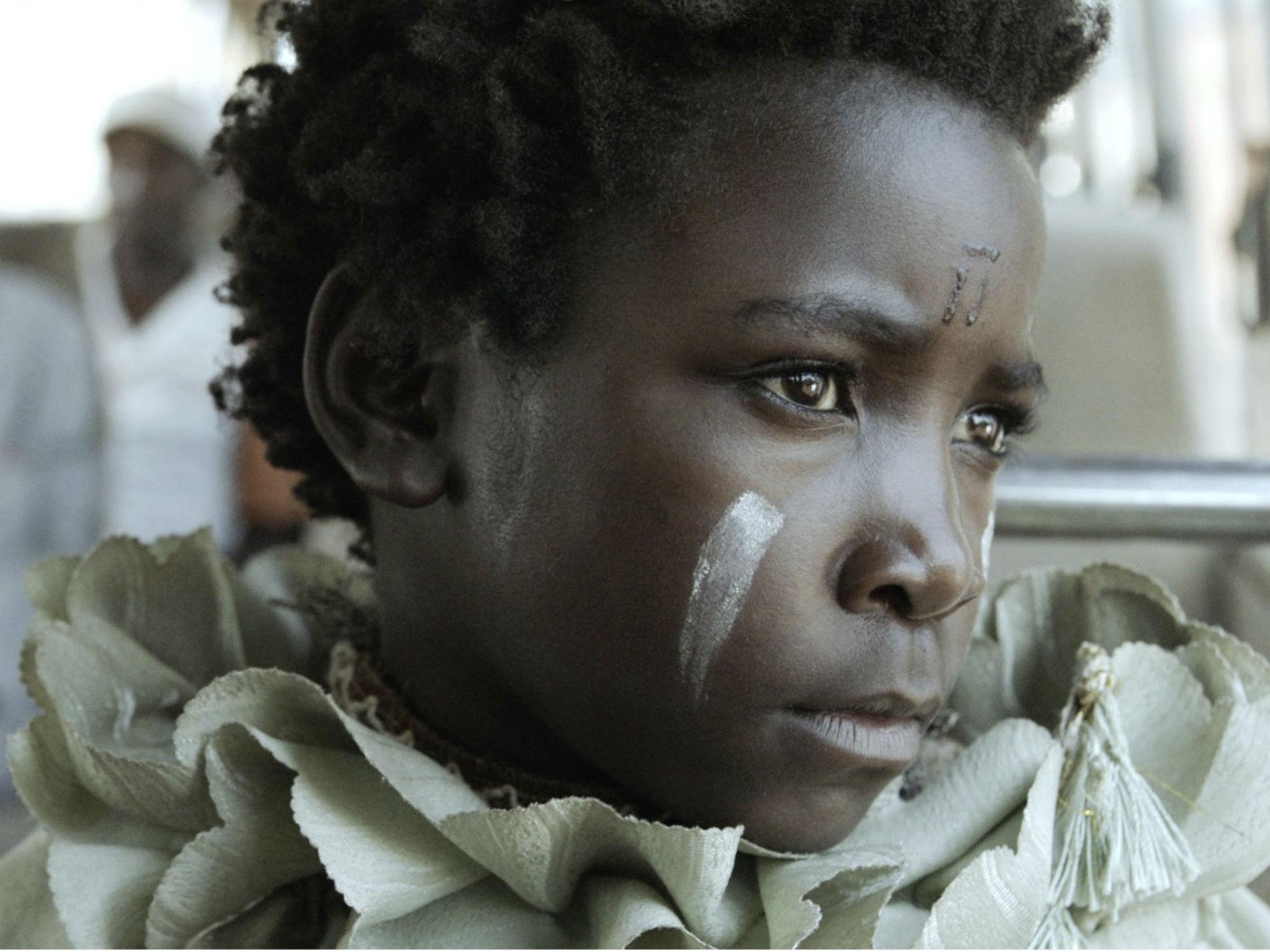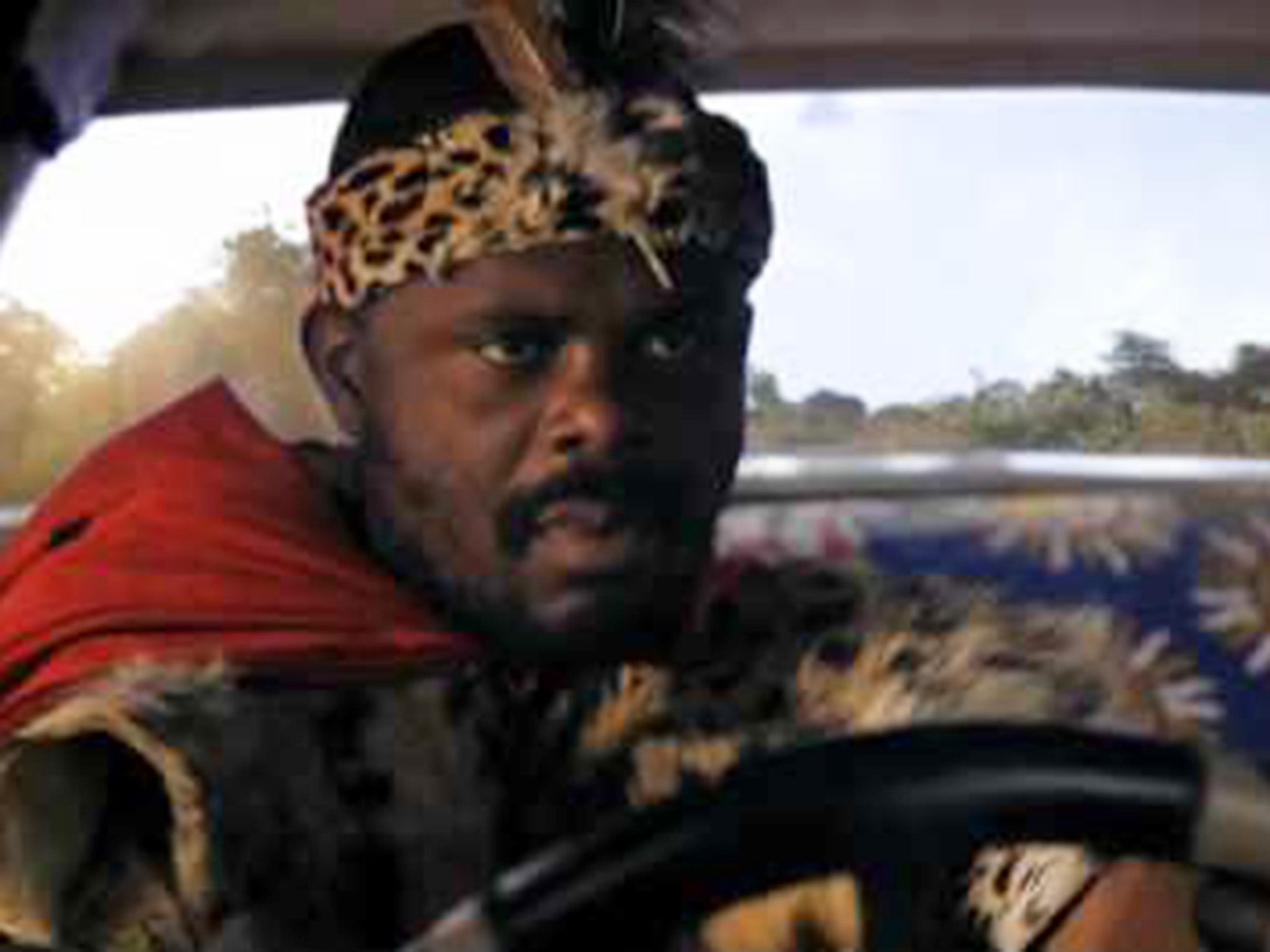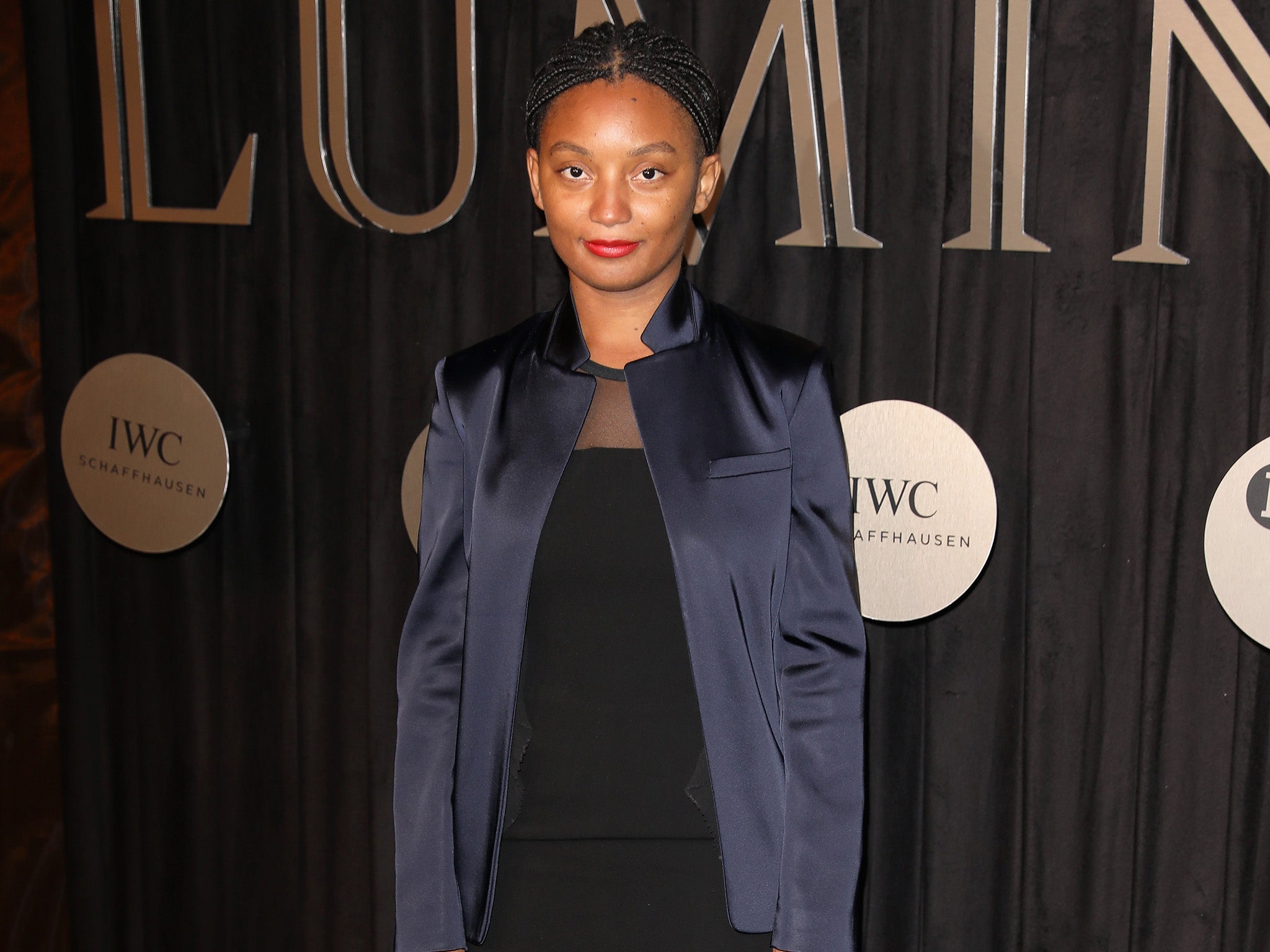I Am Not a Witch director on the modern persecution of witches in Zambia and Ghana
The director's debut feature film is about a nine-year-old who is accused of witchcraft and exiled to a witch camp under the threat that if she escapes she will be turned into a goat

Your support helps us to tell the story
This election is still a dead heat, according to most polls. In a fight with such wafer-thin margins, we need reporters on the ground talking to the people Trump and Harris are courting. Your support allows us to keep sending journalists to the story.
The Independent is trusted by 27 million Americans from across the entire political spectrum every month. Unlike many other quality news outlets, we choose not to lock you out of our reporting and analysis with paywalls. But quality journalism must still be paid for.
Help us keep bring these critical stories to light. Your support makes all the difference.
“I visited witch camps in Zambia and Ghana,” says I Am Not a Witch director Rungano Nyoni. “They are very disorganised and sparse and run by different chiefs.”
It sounds like something out of Arthur Miller’s The Crucible or Shakespeare’s Macbeth but is a story told in the present. A witch camp is a settlement that gives refuge to women accused of being witches. They are most prevalent in Ghana where the government has announced an initiative to close witch camps and teach the population that witches do not in fact exist.
“There is nothing extraordinary about witch camps,” says Nyoni. “They are like normal villages but populated by older women. They have the women working on the land and doing everyday activities.”
It is the philosophy and the sexism behind them that drove the 35-year-old director to make her debut film about these enclaves. “I am just trying to point out the absurdity of something that is misogynistic,” she says. “In my research, I found that the way that these people who held witches talked about women were extraordinary, so the film came from a place of anger.”

The director has channelled that anger into comedy; a cruel humour that has had audiences wondering whether they should laugh of cry, ever since the film received its world premiere at the Cannes Film Festival. “The best way for me to vent this anger was through a cruel humour, it’s a Zambian sense of humour which tends to be cruel. We have this hang up that we see in Britain of hierarchies where the middle class can’t laugh at the working class.”
I Am Not a Witch tells the story of nine-year-old Shula, who is accused of being a witch. She is faced with a choice of living as a witch in a camp that doubles as a tourist attraction, or trying to escape and being turned into a goat. A detail that was inspired by a French fairytale, La Chèvre de Monsieur Seguin (Mr Seguin’s Goat), which tells the story of goats who want to escape from their farm, even though they know they face near certain death by a wolf should they do so. It’s about how the desire to have a moment of freedom is stronger than the fear of death. It is through Shula’s eyes that we learn about life on a witch camp.
The young actress Maggie Mulubwa, who plays Shula, was discovered after an extensive search. Nyoni looked at approximately 1000 children before making her decision. When Nyoni discovered that Mulubwa had never been to school, she set up a GoFundMe page to raise money to give her mesmerising lead actress an education in Lusaka, the capital of Zambia. The rest of the cast are a mix of family members, non-professional actors and a captivating performance by Zambian TV star Henry BJ Phiri as government official Mr Banda.
Nyoni wanted to tell the story through the eyes of a child because she feels people are more willing to change when they have to accommodate a child. Indeed when we see Nyoni for the first time, it is the first hint that I Am Not A Witch will be a comedy, as she’s wearing a T-shirt emblazoned with #Bootycall across its front. “Africans and their random T-shirts!” laughs Nyoni. “That is giving people permission to laugh as people are kind of scared at laughing at the film.”
For the director the film is about: “How people impose rules, how people follow those rules and how difficult it is to break away from those rules, even if they are kind of unspoken rules or tradition.”

Watch Apple TV+ free for 7 days
New subscribers only. £8.99/mo. after free trial. Plan auto-renews until cancelled

Watch Apple TV+ free for 7 days
New subscribers only. £8.99/mo. after free trial. Plan auto-renews until cancelled
Needing to adapt to different cultures is something that Nyoni had to learn at an age not too dissimilar to the young protagonist in her feature film debut. Born in Lusaka at the age of eight, she moved to Cardiff where her mother had been studying as a student at university.

“I didn’t get a culture shock, as I always say that Lusaka is like Wales,” she says. Though admits: “I found it difficult because people used to make fun of my accent and I had a very strong accent. I didn’t have a lot of friends at the time as I was trying to work out how to behave. But now when I’m in Wales, I have more of a Welsh accent, and when I’m in Zambia I have more of a Zambian accent – I don’t even know what my accent is anymore.”
When she arrived in Cardiff, Nyoni lived in Riverside, where there were lots of other immigrant families. Her mother remarried a white Englishman and she was not able to go back to Zambia until she was 14. In Cardiff, her family stayed in a studio bedsit where she lived with her mum, dad and brother and sister, all in one room. “I only realised when we were older that we were really poor.”
She also had to navigate different expectations placed upon her. “There are different rules in different places and I have to adapt accordingly. In Zambia there was an obsession about me not being married for a long time, and being childless, it still is.”

Growing up, Nyoni dreamed of being an actress, studying an MA in screen acting at Central St Martins in London. During the course she realised she would rather be behind the camera. When she graduated, she began making short films, starting with The List in 2009. She went on to make two highly acclaimed short films: the Bafta-nominated Mwansa the Great, in 2011, and the multi-award winning film Listen, in 2014, which starts with a Muslim mother asking to be protected from her abusive husband in a Danish police station.
And her first film has been equally successful. Now, as it is being released in cinemas, she has one wish: “In the end I can’t help what people get from it, or take from it, I just hope that they laugh and that they feel the tragedy.”
‘I Am Not a Witch’ is out on 20 October
Join our commenting forum
Join thought-provoking conversations, follow other Independent readers and see their replies
Comments